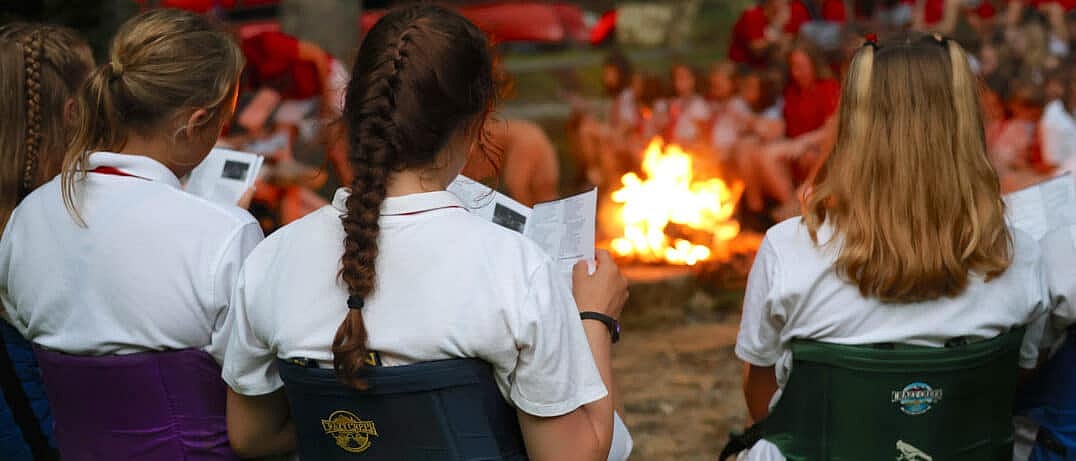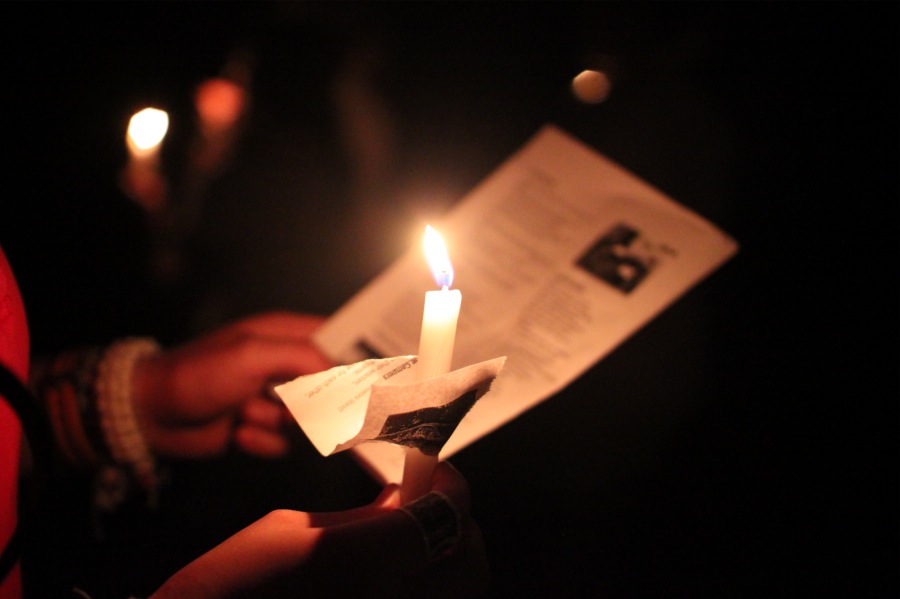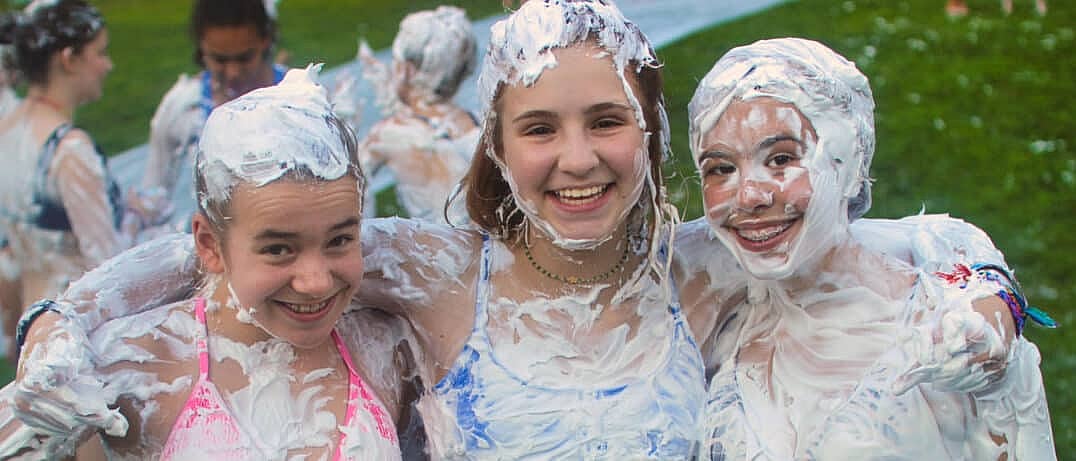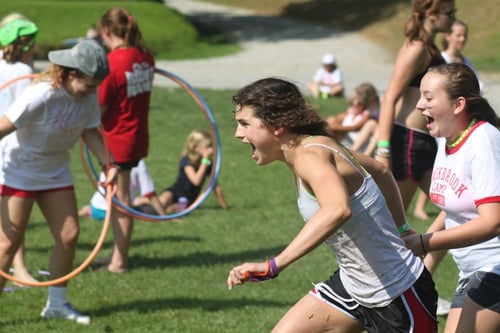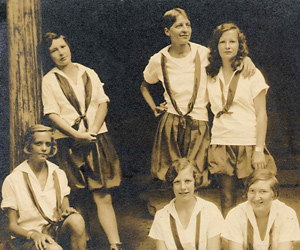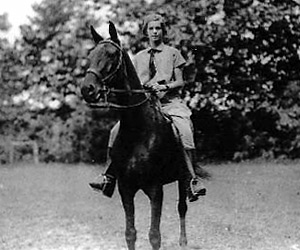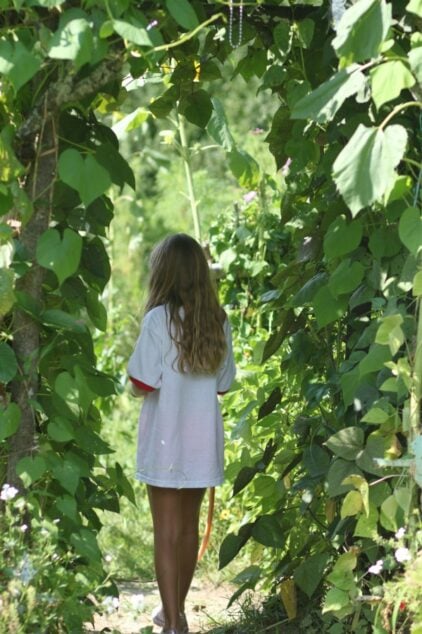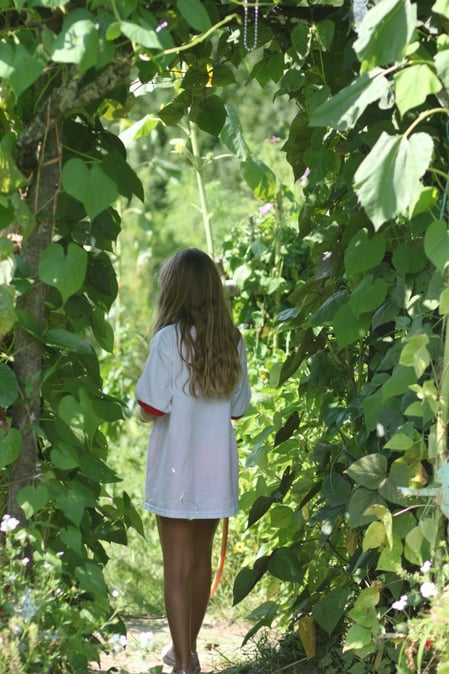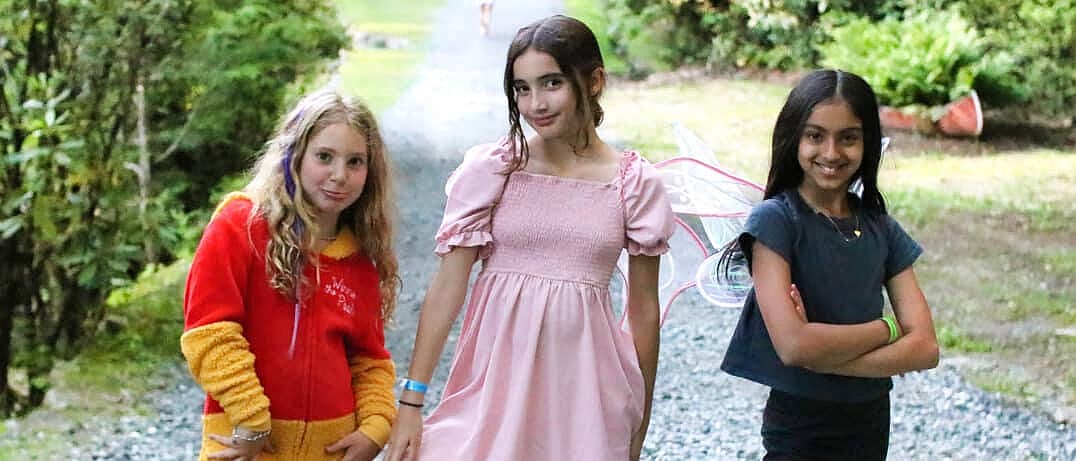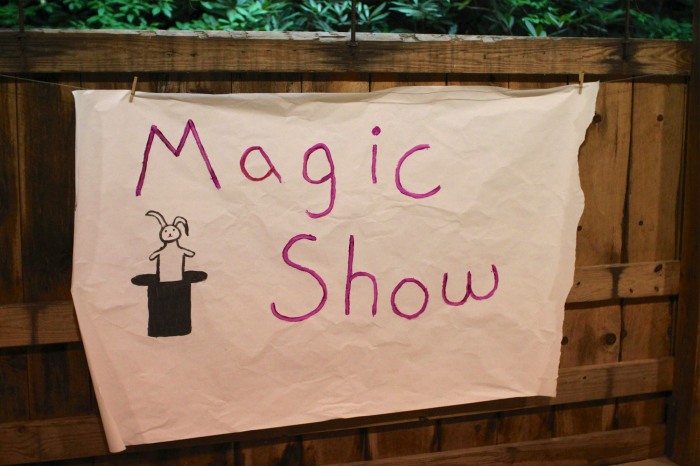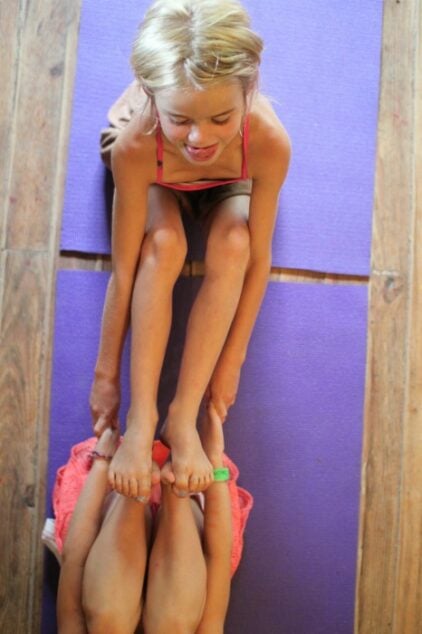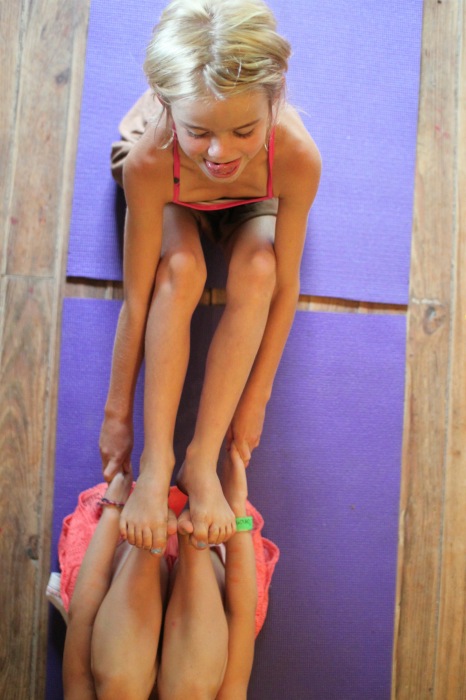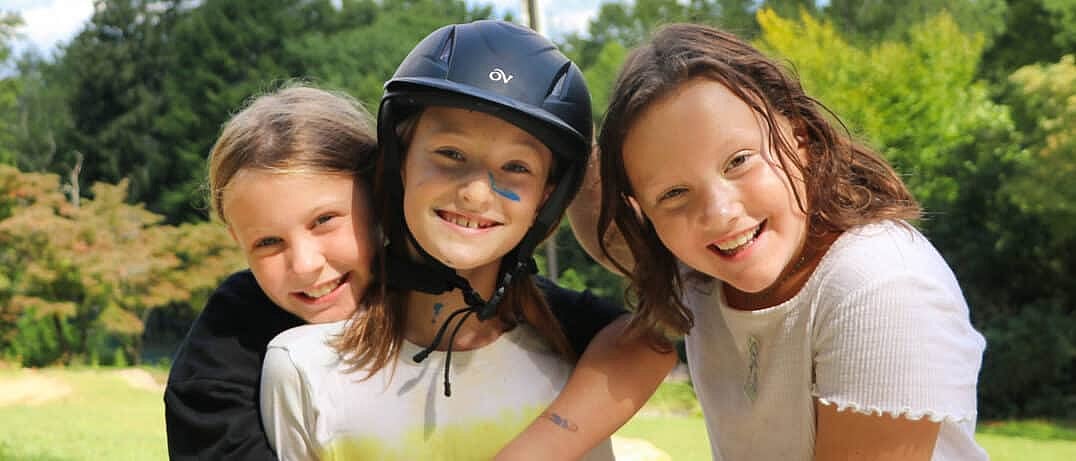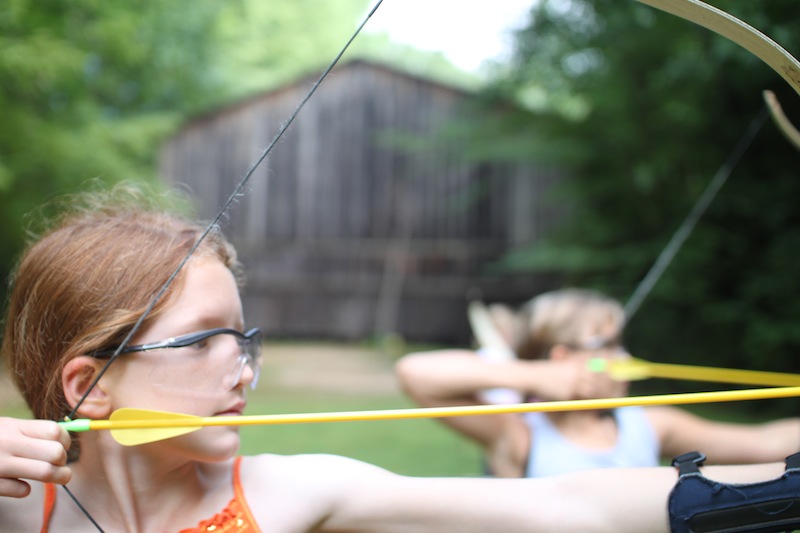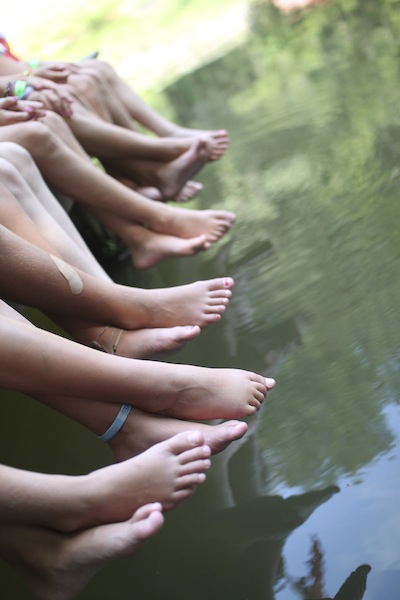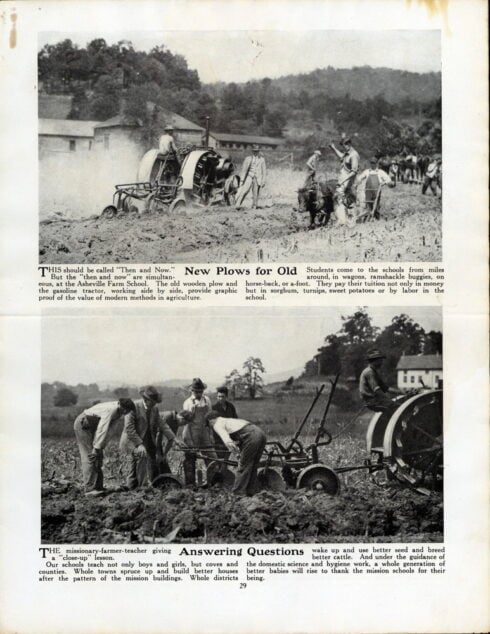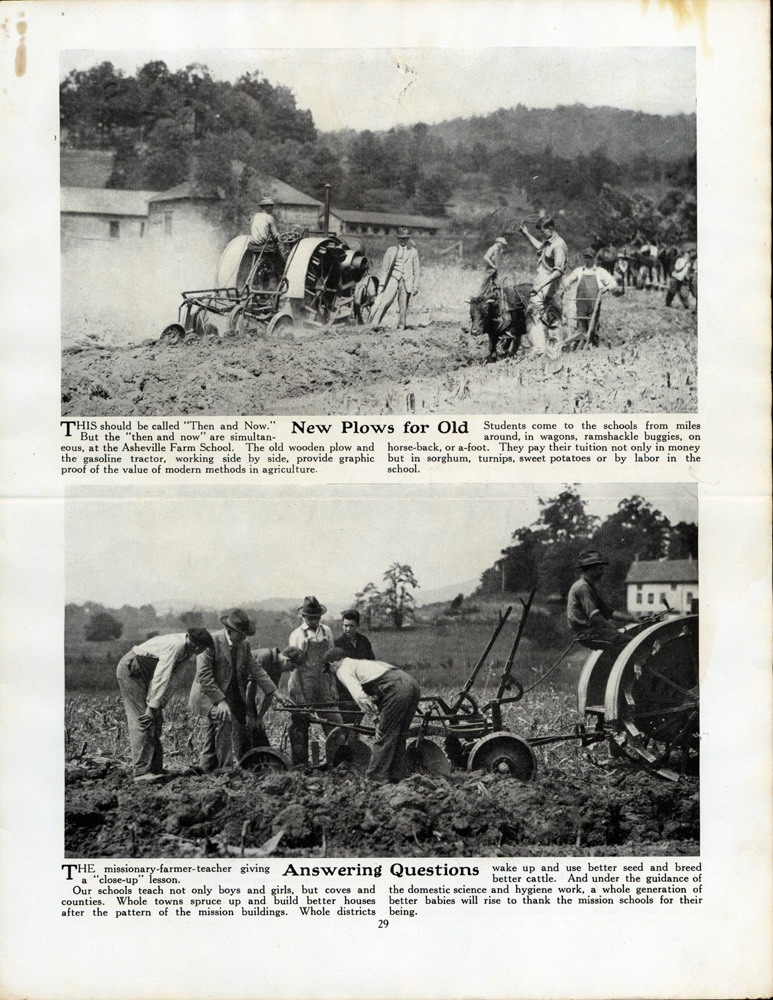We’ve written before about how to make a s’more, and even discussed the history of s’mores, but now the folks over at REI have put together a cool infographic explaining what s’mores are, a few tips about making them, and some great ideas about variations you can try (adding peanut butter, for example). Take a look!
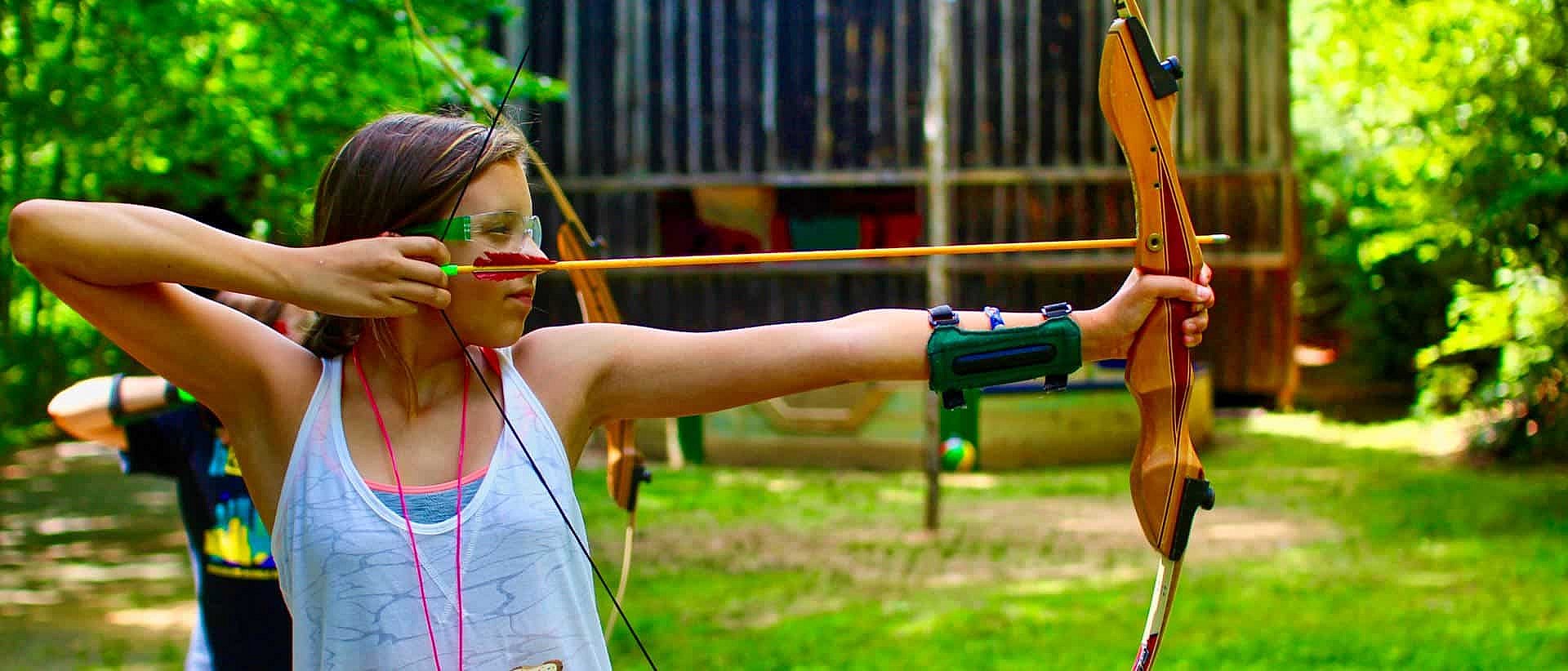
Turkey Day…Rockbrook Style!
Rockbrook girls know how to have a good time. Thanksgiving is the perfect day to show off your camp skills. Read on for a few ideas about how to put your Rockbrook knowledge to use this Turkey Day, Gobble Gobble:
-Rockbrook girls love to help out! Offer a helping hand to anyone who is working to prepare the holiday meal.
-Rockbrook girls love to get creative! Prepare a skit or talent show for your family. While the turkey’s in the oven you can wow the crew with your talents!
-Rockbrook girls love to get dirty! If there is any dish that requires you to mash, peel, or mix with your hands-go for it. Who needs a mixing spoon when you have the opportunity to make a little mess?
-Rockbrook girls love to share! If you and your sister both love pumpkin pie and there’s only one piece left, why don’t you split the piece in two? Vwah-la!
-Rocbrook girls love to get a little silly! Tell a story or two from camp at the table. The sillier the better. (You’ll get extra points if you can make your family laugh so hard they snort!)
-Rockbrook girls love to sing! Teach your family a campfire song to sing after the meal. They’ll be thankful you did.
-Rockbrook girls love to try new things! Go for it! Today’s the day- you’ve never tried Brussels sprouts? gravy? cranberry sauce? Be a little adventurous and give them a whirl!
However you use your Rockbrook style this Thanksgiving, just do your thing!
“The Big Five Model”
Your personality. You take it with you everywhere you go in life. Just like your trunk and your linens, it certainly comes with you to camp. Dr. Ethan D. Schafer describes different aspects of our personalities in his article How Understanding Your Personality Will Make You a Better Counselor. He shows us how understanding these components and their interplay with one another can transform our success as counselors.
Dr. Schafer outlines “the big five model”. This is a set of five major traits by which we can all be measured- thus, our personalities. Each of the five traits exists in a continuum rather then a category. If you categorize your personality your claim, then, is that you’re either, for example, an extravert or you’re not. You may not be surprised that researchers claim that your personality is much more complicated than that. Most of us fall somewhere in the middle of these two claims.
The “big five” personality traits Schafer suggests that counselors explore in their own personalities are extraversion, neuroticism, conscientiousness, agreeableness, and openness. As previously mentioned, considering each trait as a continuum, counselors determine where their personalities fall by aligning with a “very low” or “very high” amount of each trait on the five scales. It is important to keep in mind, Schafer warns, that personality traits are neither “good” nor “bad- they are what they are. The importance in understanding our own tendencies lies in how we use our personalities to effectively interact with the world.
Extraversion:
Extraversion refers to how strongly someone is programmed to seek positive emotions. In general, high scorers on this scale are sociable and enthusiastic. At camp, these counselors will embrace all the new opportunities presented to them, but may struggle to “follow through” on certain tasks. Low scorers are sometimes called “introverted.” They tend to be more careful and measured in how they relate to others or how they try new things. These counselors may prefer small group settings and will need to schedule more down time to refresh themselves.
Neuroticism:
Neuroticism refers to how someone is wired to experience negative emotions like anxiety or sadness. High scorers tend to be “sensitive”, they feel emotions intensely. This can work well at camp because these people tend to be more prepared for stress as they have had more practice dealing with it. They are more likely to be on guard for dangers; a very useful tool in risk management. These counselors really need to monitor their emotions while at camp. Low scorers on this scale tend to stay calmer in a crisis situation, but are less likely to take the emotional distress of others seriously because they struggle to connect with it. These counselors need training in risk management.
Conscientiousness:
Conscientiousness refers to self-control. High scorers tend to be disciplined and organized. These counselors do well at camp with autonomy and a set of responsibilities. They may have trouble when a situation calls for flexibility. Low scorers are a bit more spontaneous and impulsive. They do well with situations that are fluid and constantly changing. These counselors must work on skills such as planning and promptness.
Agreeableness:
Agreeableness refers to caring about others. High scorers are empathic. Counselors with high agreeableness will be very patient and understanding. They will, however, need to work on listening to constructive criticism without taking it too personally. Low scorers put less weight on emotional factors and interpersonal issues when making choices about how to behave. These counselors tend to do well with making difficult decisions without taking matters personally. Low scorers need to make deliberate efforts to understand the emotions of other staff members and campers.
Openness to Experience:
High scorers in this category tend to be unconventional and creative. At camp, this leads to innovated thinking and leadership styles. These counselors may need direction, however, to value the traditions and the structure of camp. Low scorers are more literal and concrete. These counselors love to work on concrete tasks. They need to work to remember not to allow their disinterest in more free-flowing ideas to influence their camper’s decisions.
Schafer concludes by stating that learning what works best for our personalities is a lifelong process. Camp is the perfect place to begin.
Rockbrook Girls Ahead of their Time
Did you know that Rockbrook was founded only 2 years after women earned the right to vote? The 19th Amendment was passed on June 4, 1919 and Rockbrook officially opened on July 6, 1921. Nancy Carrier, founder of Rockbrook, was certainly ahead of her time in creating a space for young women to come to gain independence, learn skills, make friendships and take part in adventures. It is hard to imagine the excitement a camper must have felt to pack up and ride the train to Brevard and stay at camp for 8 weeks! Here are some wonderful historical excerpts from an early camp catalog that describe the adventures.
“For 25 years camping parties have gone out from Rockbrook, thus they know by experience how far the first hike may go, where is the best spot for a moon-light supper and in what sheltered coves tents may be pitched for a stay of several days. They know where the coldest springs lie hid; when the huckle-berries are ripe on the top of the ridges’ and on whose property a canoeing party may camp.”
“Hiking. Here at Rockbrook, it means a well regulated walk amid scenes of unsurpassed beauty with a party of congenial comrades. The over-night hikes, taken after the girls have learned to climb up and down, to make camp and to care for themselves and others, are among our most popular sports.”
“The Pisgah National Game Preserve is within reach of both riding and hiking parties from Rockbrook. The forest regulations are complied with so that campers may enjoy the camping and fishing if they wish to do so.”Thanks to strong, empowered women like Nancy Carrier, we think Rockbrook Girls have always been ahead of their time! Here’s to many more years of fun, friendship and adventure in the heart of a wooded mountain.
Words that Inspire
During a staff meeting this past summer, we divided our counselors into groups of four. Each group was given a set of famous quotations that they were asked to relate to their job at a summer camp. After five minutes the groups traded quotations and the pattern continued until each counselor had analyzed about 25 different quotes.
Some of the responses from counselors were funny, some sweet and tender, and many were thought-provoking. Take a look at a sampling of the words that inspired our job performance last summer.
“The only people for me are the mad ones, the ones who are mad to live, mad to talk, mad to be saved, desirous of everything at the same time, the ones who never yawn or say a commonplace thing, but burn, burn, burn like fabulous yellow roman candles exploding like spiders across the sky.” -Jack Kerouac, On the Road
“Do the things you talked about doing but never did. Know when to let go and when to hold on tight. Stop rushing. Don’t be intimidated to say it like it is. Stop apologizing all the time. Learn to say no, so your yes has some oomph. Spend time with friends who lift you up, and cut loose the ones who bring you down. Stop giving your power away. Be more concerned with being interested than being interesting. Be old enough to appreciate your freedom, and young enough to enjoy it. Finally, know who you are.” -Kristin Armstrong
“Life begins at the end of your comfort zone.” -Neale Donald Walsh
“Consider the postage stamp: its usefulness consists in the ability to stick to one thing until it gets there.” -Josh Billings
“If you think you are too small to be effective, you have never been in the dark with a mosquito.” -Unknown
Icing on the Cake
We all come to camp prepared to work with children. We think, ‘Psych 101 taught me stages of development- check. My education and public speaking course taught me effective teaching techniques- check. Living on my own taught me healthy conflict management skills- check.’ Good to go, right? Not quite. Camp is about expanding on your knowledge during staff training and learning how to put it into practice with children, and it never hurts to have a little extra icing on your cake.
What does “icing on the cake” mean exactly? Working at camp requires a pretty strong set of toes because you are on them all the time. Children have figured how to keep things fun, exciting, and unpredictable for camp counselors. In order to return the favor, you should have a few tricks up your sleeve. In addition to learning all you can about the stages of development, respectful behavioral management, and effective activity teaching techniques- you may need just a little more uumph to keep your campers in engaged. Read on for a few ideas of how to put the icing on the cake:
Fun Facts:
Introducing fun facts into conversation is a very effective tool for reaching campers. Incorporating new information that surprises your campers during meals, at bedtime, or during rainy day activities will keep things fresh and exciting. Your facts will be met with wide-eyes, giggles, and very interested campers.
Here are a few examples provided by Science Kids and National Geographic Kids:
-Even when a snake’s eyes are closed, it can still see through its eyelids.
-Cats use their whiskers to check whether a space is too small for them to fit through.
-Teddy Roosevelt had snakes, dogs, cats, a badger, birds, and guinea pigs as pets while he was in office
-FDR was the first president to ride in an airplane
Magic Tricks:
Now this one is a bit “tricky” (pun certainly intended). It’s very easy to go over-board with magic tricks, but it does not take much to incite wonderment in kids.
PBS Kids takes up step-by-step through a fabulous trick to perform with your campers.
The Disappearing Salt Shaker (You’ll need a salt shaker, a dime, a napkin, a table, and a chair)
1. Begin by stating that you will make a dime disappear by rubbing the salt shaker over it.
2. Cover a salt shaker with a napkin and put your hands over it.
3. Place the salt shaker, now covered by the napkin, on top of the dime and say the magic words, “zooma zooma zoom- make this coin leave the room!” and then take the napkin with the salt shaker off the table. The coin is still on the table. Now pretend that you are disappointed because the coin didn’t disappear and the trick has failed.
4. Then, while the napkin and the shaker are off the table, open your hands and let the salt shaker fall into your lap. The napkin will still look like the salt shaker is in it. Then say, “let me try that again.”
5. Now place your hands over the “shaker” and say the magic words, “zooma zooma zoom- make this coin leave the room!”
6. Push down the napkin, and it will seem like the shaker has fallen through the table!
7. You campers will be amazed!
Jokes and Riddles:
Jokes and riddle are classic and match the spirit and pace of camp- fun and sweet!
Take a look at a few of our favorites also provided by PBS Kids:
Q: What do puppies eat at the movies?/ A: PUPcorn
I was wondering why the baseball was getting bigger and bigger and then it hit me!
Q: Where does a duck go when he is sick?/ A: The DUCKtor
Q: How do you make seven even?/ A: You take away the “s”
With all this icing and all the cherries on top, it’s important to remember, however, that the most important thing to your campers is the cake- that’s you!
Yoga and Camp
Camp provides so many wonderful opportunities for girls to try new things- whether it’s creative, athletic, or adventurous. Our counselors spend quite a bit of time preparing to become experts in the instruction of our camp activities. Often time this preparation can be quite a process! One of our fabulous cabin counselors, Mallory, recently received her Yoga Instructor Certification. She recounts her experience and how she plans to use her new knowledge in the future below:
“I literally did yoga from before sunrise to after sunset on many occasions (6am to 8:45pm…CRAZY!), but I loved every moment of it. We learned to adjust students, come up with class themes and sequences, learned to sing/chant in sanskrit, and worked on some fun arm balances. We got to do a kids’ yoga class, a chair yoga class, a prenatal class, a mommy-baby class with sandbag babies, and more! I tried a lot of different styles of yoga (Bhakti, Jivamukti, Ashtanga, Anusara, Viniyoga, and Kundalini) with a lot of AMAZING teachers! We ate a lot of weird green smoothies (avocado, dates, walnuts, banana and chocolate, anyone?) since we were always doing yoga…I’m super excited to begin teaching yoga and figuring out how to incorporate it into my future science/public school teaching!”
We are very proud of Mallory!
Counselors On Target
This past summer, our staff meetings focused on the personal and professional development of our counselors. We explored positive leadership qualities, relaxation techniques, and several other topics meant to equip our staff with all the tools they needed to best serve their campers. One article that drove our staff’s performance last summer was Stephen Wallace’s Letters From My Campers- A Counselor’s Guide to Mentoring Youth. The article provides simple, yet powerful principles for the profession. Here are a few our favorites from Wallace:
- Communicate information
- Have a sense of humor
- Clarify expectations
- Be relaxed
- Be a good role model
- Show leadership
- Have fun with your campers
- Model responsible behavior
- Discourage foul language
- Teach fair play
- Supervise for safety
- Show a knowledge of each camper
- Be fair to all campers
- Encourage campers to try new things
- Foster self-confidence
- Be patient
- Be vigilant
Rockbrook in The New York Times
In our last blog post we shared some interesting information about the history of Farming at Rockbrook. During our research on the history of the farm, we also found a fascinating news article from The New York Times about The Carriers bringing the first motorized tractor to the area saving the farming season with their new machine. Mr. Carrier was in the automobile and tractor business down in SC, and that is how he came to Brevard in the first place. H.P. Clarke, founder of Rockbrook Farm and father of Nancy Clarke Carrier (camp founder) ordered an automobile from Mr. Carrier’s dealership. While delivering the car, Mr. Carrier met Nancy Clarke and their romance began. They would eventually marry and Mr. Carrier would relocate to Rockbrook Farm. It is during this time that Mr. Carrier joined Mr. Clarke in his farming business and eventually purchased the tractor that would come to serve such an important role in farming of the French Broad River Valley.
The article states that:
When Mr. Carrier took over Rockbrook and became a farmer, he carried his auto-traction interest with him. He had his car and his truck, and he got a couple of tractors. He sold one tractor to the town of Brevard for street and road purposes, and then the French Broad River got busy. It flooded the valley three times before May 1. Farmers who had lost their crops in the bottoms before began to despair. Not a grain of corn was planted in the whole valley, but then came a few precious days of dry warm weather and the tractor got busy. It plowed up whole fields in the time when a team of mules had previously covered only acres. It ran from sunrise until after dark, without a whimper. It carpeted the young green valleys with mighty areas of rich dark brown. The sound of its chug-chug as it sturdily turned its wide furrows from river’s bank to mountain side, echoed back from distance coves and told the wondering mountaineers that a new era had dawned on the French Broad. Excerpt from The New York Times, September 12, 1920
Isn’t it interesting that this bit of news made it all the way to The New York Times? Mr. Carrier really did save the day! It is said that not only did he lend out the tractor to local farmers, he also traveled with the tractor to teach his friends how to use the new gas powered machine.


